From Accreditation to Innovation – We’ve Got You Covered
Building Stronger Healthcare Institutions With Expert Guidance
We bring together specialists who don’t just understand the challenges of healthcare education—they’ve shaped the solutions.

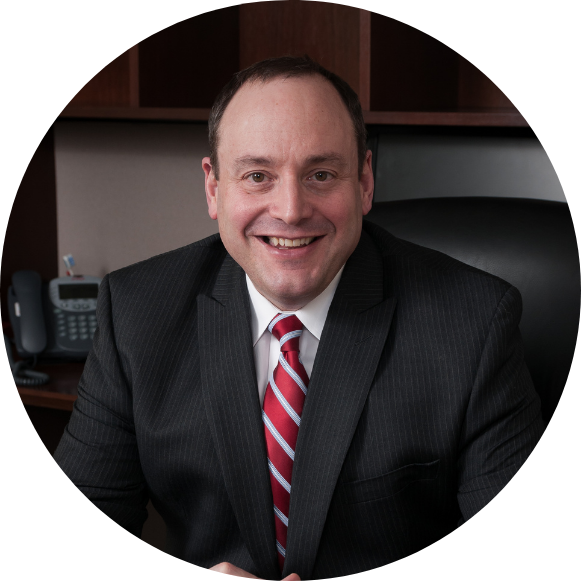

Joel Berg, DDS, MS is an expert in dental education curriculum development. His work in the “Dentist of the Future” curriculum has received national acclaim for its ability to integrate dental and medical education toward improved patient care outcomes. Dr. Berg is a highly respected thought leader on “Medical Management of Dental Caries” and is sought after as a keynote speaker on this and other industry-changing topics.
BIOGRAPHY
Joel Berg, DDS, MS is an expert in dental education curriculum development. His work in the “Dentist of the Future” curriculum has received national acclaim for its ability to integrate dental and medical education toward improved patient care outcomes. Dr. Berg is a highly respected thought leader on “Medical Management of Dental Caries” and is sought after as a keynote speaker on this and other industry-changing topics.
Dr. Berg is an expert in managing dental caries as a chronic disease, and the future of oral care provision using a CDM model. He speaks regularly on the importance of understanding oral care as not just a surgical discipline but also a disease management discipline. He is a proven leader with decades of experience in health education and access to care. He is experienced in policy development working with organizations such as the American Academy of Pediatric Dentistry to help change the landscape of care provision. He is exceptionally experienced in dental accreditation, both as a former Commissioner of the Commission on Dental Accreditation (CODA), and as one who has shaped innovative curricula across the nation.
Joel Berg, DDS, MS is an industry-respected consultant, lecturer, author, and thought leader in dentistry. A board-certified pediatric dentist, Joel was President of the American Academy of Pediatric Dentistry (AAPD) from 2012 to 2013 and President of the American Academy of Esthetic Dentistry from 2018 to 2019. Joel is also the former Dean at the University of Washington School of Dentistry and was principal in the creation of a 26-chair, state-of-the-art facility that provides comprehensive oral health services to children. He continues to practice pediatric dentistry part-time in the Phoenix area and stays connected to organized dentistry through his consulting business, industry research and published works, and various philanthropic roles. Joel is co-editor of the book "Early Childhood Oral Health" (2 editions), and has published extensively on subjects, including dental restorative materials for children, medical management of dental caries, and chronic disease management. He lectures to dental professionals regularly on “Medical Management of Dental Caries” and “Moving Toward a New Kind of Dentistry." Joel is also the host of "Little Teeth Big Smiles," a podcast that invites thought leaders, experts, and professionals in the field to talk about all things pediatric dentistry. The podcast takes a holistic approach to its coverage and its wide-ranging topics include the best infection control practices, behavioral management, how to manage your business online, innovative ideas for best practices, and discussions on policies and legislation that could affect pediatric dentistry. Joel also hosts the AAPD-launched podcast series, "Newly Erupted," which targets pediatric dental residents and new practitioners. The topics are selected by a committee of young members of the profession. In his free time, you can find Joel hanging out with his Great Pyrenees puppy named Walden.

.png)

Dr. Weed is an expert in improving outcomes for patients with special needs ranging from disabilities to socioeconomic distress and those facing access challenges, whatever the cause may be. He speaks regularly on the importance of understanding that while healthcare happens in the clinic, most health maintenance and improvement happen outside of it. He also has helped form a $150 million research center and a wide variety of student services at several universities, and regularly advises students on the college and health professions school search and application process.
BIOGRAPHY
Dr. Matthew Weed is the General Manager and Chief Academic Officer for Academic Health Associates. He leads academichealthassociates.com’s rapidly growing health professions training program development and accreditation activities. He also engages resources from our numerous partners and beyond to increase opportunities for our partner organizations while helping health professionals better understand how patients manage their health at home and work and how everyone can make the clinic and at home care more accessible for all. This part of his work is helping reduce costs and improve outcomes for patients, caregivers, health professionals and society as a whole.
Dr. Weed is a totally blind type I diabetic three time Yale graduate, including his Ph.D. in Genetics earned in 2004. He also has master’s degrees in Public Affairs and Genetics earned at Princeton and Harvard in 1995 and 1996, respectively. While an undergraduate at Yale, Dr. Weed co-created an early method for making electronic text available to the blind in 1990. The Yale Text Scanning system was three times more efficient with respect to cost and employee time in producing usable product, and its output was 10,000 times more space efficient than recording books to audio tapes which was the standard at that time. Electronic text also allowed users to search for information far more efficiently than scanning through audio tapes. He has mentored, hundreds of student caregivers, most of whom are now health professionals and scientists in more than half of US states and many countries around the world.
After post-doctoral involvement in bio ethics and medical education at Yale, he became the Interim Associate Director of the $150 million Wisconsin Institute for Discovery at the University of Wisconsin-Madison which he helped launch in 2010-2012. He then became a Yale- Hastings fellow in bioethics from 2013-15, while growing his interest in accessibility, speaking, and health professions training reform. Dr. Weed helped build programs for students with disabilities at Yale, Princeton, and the University of Wisconsin-Madison. He has been an accessibility consultant for numerous schools and government institutions. During his dissertation work, he was an informal adviser on embryonic stem cell and human cloning research and policy to the Acting Director of the National Institutes of Health.
Dr. Weed regularly gives presentations to health professions schools and healthcare systems on ways to improve accessibility to the clinic and optimize extra clinical outcomes for patients with special needs. He has spoken to audiences at the NIH, numerous medical programs including the University of Pennsylvania and Northwestern Schools of Medicine, dental schools including Tufts, the University of Minnesota and Oregon Health Sciences University, and health systems including Yale, Hudson Headwaters Health, and City Block Health. He is also working to improve health professionals’ understanding of how patients with special needs of all kinds ranging from disabilities to those with limited English proficiency and poor access to practical and social supports manage (and often struggle to manage) their lives and health challenges when at home and at work: a gap in training that costs the healthcare system hundreds of billions annually and increases stress for patients, caregivers, staff , health professionals and our society as a whole. Dr. Weed works with applicants to colleges and also with pre health and health professions students to help them with admissions processes for professional school and advanced training. In doing so he has learned a great deal about how schools recruit, support and train their students. Knowledge he puts to work on behalf of programs Academic Health Associates works with.
In his spare time, Dr. Weed reads, travels, enjoys outdoor activities, spends time with his two shelter rescue cats, and stays connected with his hundreds of past and current mentees.
.png)
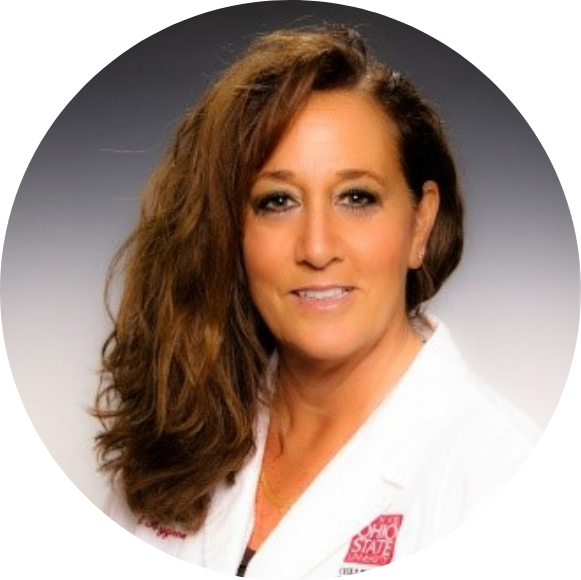

Dr. Carr regularly gives continuing education presentations to dental hygienists, is active in dental hygiene professional associations, and speaks regularly with students on career progression. She currently is the Vice-President of the Ohio State Dental Board and is an examiner for the ADEX dental hygiene clinical licensure examination.
BIOGRAPHY
Dr. Carr is tenured faculty emeritus at The Ohio State University, College of Dentistry, Division of Dental Hygiene. Dr. Carr served in a variety of roles within the College of Dentistry and the University for 29 years including Chair of the Division of Dental Hygiene, Director of Continuing Dental Education, and serving on University Faculty Senate. During her tenure at the College Dr. Carr was instrumental in developing the curriculum for the online Dental Hygiene Baccalaureate Degree and the Masters of Dental Hygiene programs, both in an effort for dental hygienists to advance their degrees and to encourage careers in higher education. Additionally, having served as a dental hygiene consultant and a review committee member for the Commission on Dental Accreditation for eight years, Dr. Carr developed a passion for dental accreditation and curriculum development.
Dr. Carr earned her Dental Hygiene Certificate and bachelor’s degree in health education in 1984, a Master’s degree in Public Policy and Administration specializing in Health Services Administration in 2003, and her Doctor of Education in Higher Education and Student Affairs in 2021.
Since retiring from Ohio State in 2018, Dr. Carr has been determined to assist programs in preparing for initial and recurring accreditation site visits and began consulting with dental hygiene programs across the country. She has been lead consultant on approximately 40 dental hygiene accreditation and reaccreditation projects. In addition to preparing for site visits, Dr. Carr has helped new programs design their curriculum and developed numerous courses including all content, presentations, and evaluation mechanisms necessary for required dental hygiene content. Dr. Carr also specializes in curriculum management, outcomes assessment, and quality assurance within dental hygiene education.
In her spare time, Dr. Carr enjoys travel, especially with her husband and twins and when not traveling, spoils her rescue dogs and volunteers at a local dog shelter.

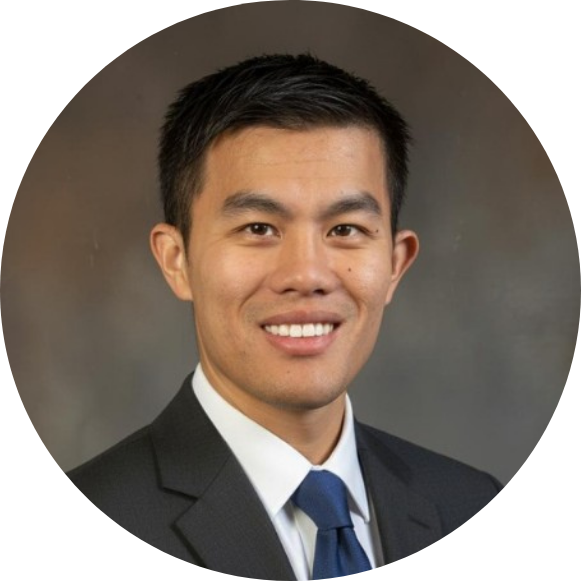

Dr. Phillip Wong is an oral and maxillofacial radiologist with extensive experience in dental education, curriculum development, and clinical leadership. He has served in faculty and administrative roles that span didactic teaching, clinical supervision, and program oversight, with a strong focus on advancing CODA accreditation standards and ensuring practice-ready graduates.
BIOGRAPHY
His greatest academic accomplishment is receiving the Trustees Teaching Award in 2021 from Indiana University, which honors faculty members who demonstrate outstanding teaching and have a significant positive impact on student learning.
Dr. Wong has spearheaded quality improvement initiatives that reduced radiation exposure while strengthening compliance and training systems. He has trained dental professionals in radiographic technique and interpretation, and he is also an experienced continuing education presenter, having delivered CE courses in oral and maxillofacial radiology, radiation safety, and digital imaging applications.
Dr. Wong’s accreditation expertise includes extensive service with the Commission on Dental Accreditation (CODA). He has participated in multiple official site visits across programs, where he evaluated compliance, reviewed self-studies, and collaborated with institutional leadership. Notably, he has served as Chair on CODA site visits, leading review teams, guiding consensus-building, and ensuring rigorous adherence to accreditation standards. These experiences have positioned him as a leader in accreditation readiness, faculty calibration, and competency-based program evaluation.
Beyond accreditation, Dr. Wong’s expertise extends to curriculum innovation, where he has contributed to CODA self-studies (including leading the development of successful documentation of Standard 5 compliance), faculty calibration processes, and competency-based assessment frameworks. He is also engaged in emerging applications of artificial intelligence in dental imaging and education, exploring how new technologies can enhance diagnostic accuracy, streamline clinical workflows, and improve student learning outcomes.
With a DMD and a Master’s in Biomedical Sciences, Dr. Wong is uniquely positioned to bridge foundational biomedical sciences with clinical education. His teaching and leadership emphasize integrating scientific rigor, evidence-based practice, and technological innovation into the training of future dental professionals.
In his spare time, Dr. Wong enjoys golfing and long-distance running, as well as spending time with his wife, son, daughter, dog, and cat.
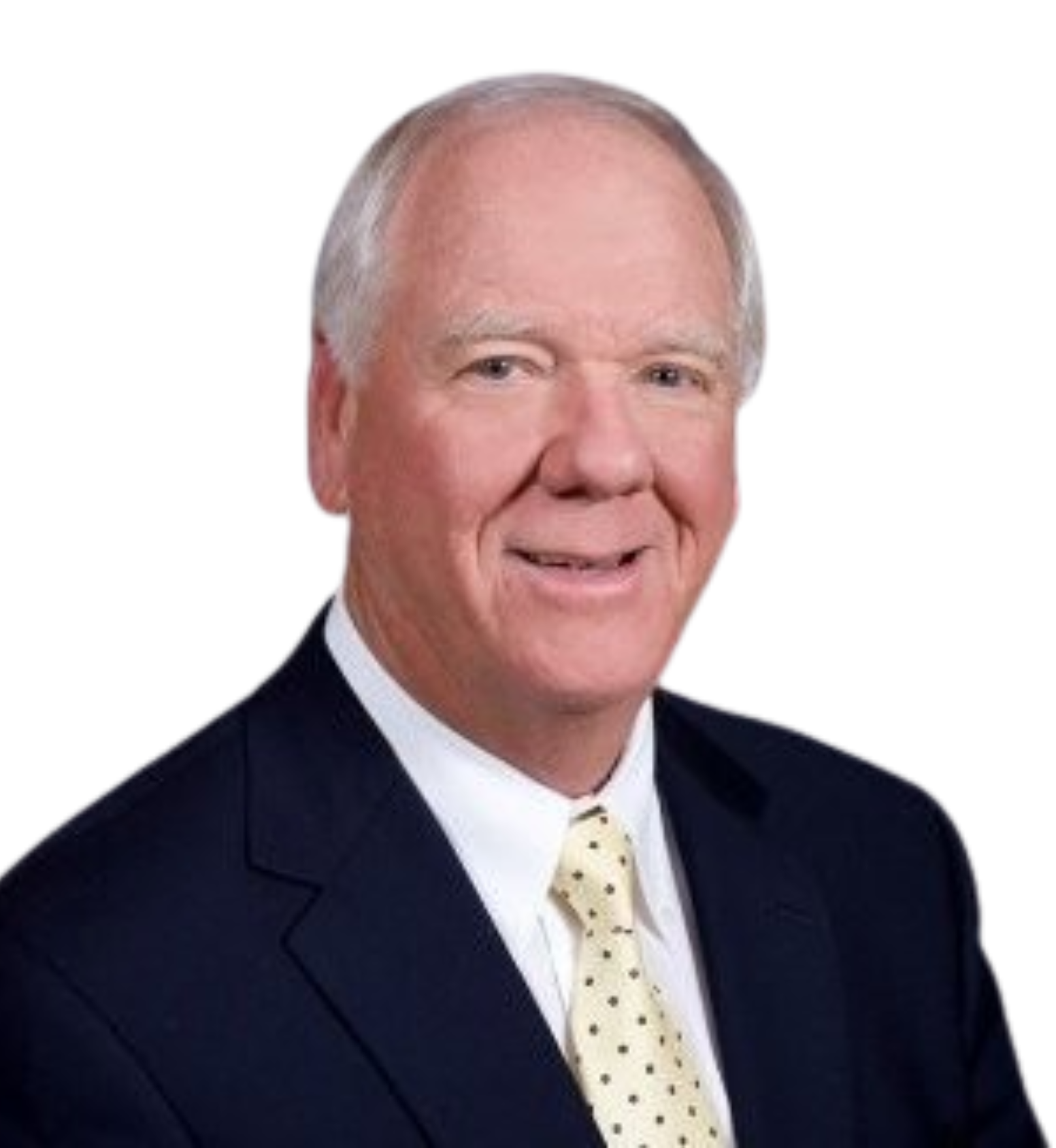
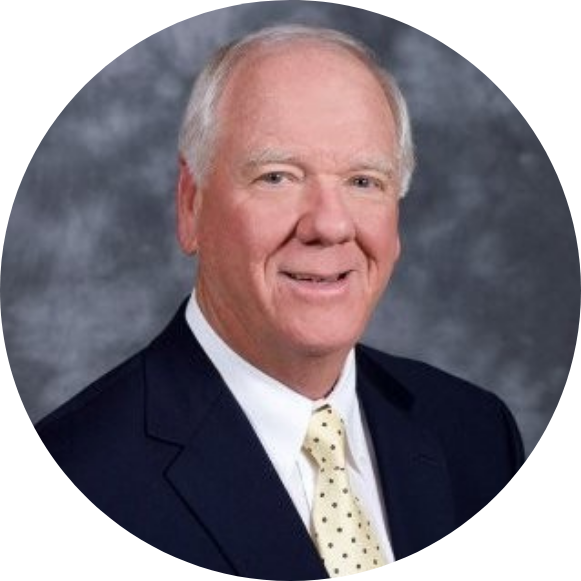

Dr. Sanger specializes in helping health professionals better manage their practices and is a mentor for entrepreneurial business starts-ups in the healthcare and continuing education arena as well as other healthcare businesses.
BIOGRAPHY
Dr. Sanger received a BS and DDS (1970) from the University of Southern California as a Trustee Scholar. As a Mott Foundation Fellow, he completed a three-year residency (Pediatric Dentistry -1972) and fellowship (Craniofacial Anomalies/Genetics -1973) and obtained a postdoctoral certification in Pediatric Dentistry from USC and its hospital systems (1972). He then served as Residency Program Director and attending staff at USC Children’s Hospital Los Angeles with research in Craniofacial Syndromes. He was a NIH Fellow and obtained a MS in Healthcare from the USC Schools of Education and Medicine (1975). He then went on faculty at the University of Colorado Medical Center and School of Dentistry where he attained the rank of tenured Full Professor in Pediatric Dentistry as well as Chair of the Department of Pediatric Dentistry/Orthodontics and Assistant Dean for Hospital Programs. He attended the Armed Forces Institute of Pathology obtaining certification in Forensic Dentistry and was the first Forensic Odontologist for the State of Colorado. He was awarded a WHO Fellowship (1981) for sabbatical oral health research in the Far East. Dr. Sanger coauthored two clinical textbooks in Pediatric Dentistry and hundreds of scientific articles and textbook chapters.
With a familial business background, he left academic career (1982), and cofounded a private practice that became over the next three decades one of the largest regional multidoctor, multifacility pediatric dental groups in California with over 150 employees, two surgicenters, a hospital based practice, and an orthodontic alliance practice. He cofounded a non-profit 501(C)3 foundation with private grant support for affiliated school based mobile dental clinics. Dr. Sanger sold this practice internally in 2011 to devote more time to other dental entrepreneurial business activities. At the time of his departure, this group was billing over 34 million dollars per year through provider participation in Medicaid, CHIP, Headstart, Migrant Headstart, and other commercial indemnity and PPO insurance plans. Over 40% of which being enteral conscious sedation administered full mouth rehabilitation care. He was a founding member of one of the first management service organization (MSO) in dentistry, the precursor to today’s DSOs.
In 1982, Dr. Sanger and his wife, a USC BS RDH dental hygienist founded The Sanger Group which offered practice management seminars and workbooks for national study groups and dental consulting companies. He authored in 2008 a management textbook “The Entrepreneur’s Children’s Dental Practice”. He has been a Contributing Editor for Dentistry Today and a contributing author for Dental Economics. Dr. Sanger is both a “wet fingered, in the trenches dentist” as well as a “leader in innovative practice endeavors.” Dr. Sanger trademarked the terms “Pedonomics” and “Pedometrics” which conceptualizes the financial impact of game changing technology with time economics and business systems in today’s pediatric dental practice.
In 2009, Dr. Sanger became the first Director of Pediatric Sedation curriculum for DOCS Education of Seattle lecturing at numerous multiday courses each year as well as being involved in personal learning experiences courses at his group practice. Besides being intravenous sedation trained, he has performed over 15,000 cases of in-office pediatric enteral sedation with full mouth reconstruction.
In 2014, Dr. Sanger was cofounder and course director/faculty for NuSmile’s Institute for Pediatric Dentistry bringing didactic and simlab education in today’s “gamechanging” clinical pediatric dental procedures through hands on education at many dental schools, dental organizations and DSO groups.
In 2016, Dr. Sanger became the Exec. Dir. of MCNA Dental Plan of Idaho, the administrator for the State of Idaho dental Medicaid/CHIP program. In 2017, Dr. Sanger also became the Director of Dental Operations for MCNA in establishing new state contracts. MCNA Dental is a MCO specializing in the administration of state dental Medicaid/CHIP programs. MCNA is a subsidiary of United Healthcare where presently Dr. Sanger is a consultant.
In 2020, Dr. Sanger joined the board of directors at Execudent, a leading company founded by Dr. Joel Berg in bringing talent to opportunity in the dental profession. Dr. Sanger is a Life Member of the ADA/CDA/ISDA and AAPD/WSPD/CSPD/ISPD having served on many of their boards and committees. He is on the board of one of the critical care hospitals in St Luke’s Health System of Idaho.
Dr. Sanger is an Eagle Scout and former dental officer in the USAFR Dental Corps. He lives in Sun Valley, Idaho, and Carmel-by-the-Sea, California with his wife Kathy, and maintains interests in writing, historical research, and vintage firearms.



Dr David Carsten is a Biochemist, Dentist, Anesthesiologist, and a Commissioner. He has developed a strong record of teaching, research, leadership, and service on the local and national level. His professional focus is protecting the public through improvements in dental education, inter-professional collaboration, regulation, and licensure.
BIOGRAPHY
As a university educator he actively participates in several courses, introducing young student dentists, assistants, and hygienists to anesthesia, sedation, medical emergencies, special care, and trauma-informed care. As the course director of anesthesia and sedation for DS2 students, he has created an evolving curriculum with a virtual objective structured clinical examination final, small-group near-peer facilitation, asynchronous video content didactics, in-person case-based learning, and continuous improvement based on student feedback. In the Introduction to Dental Practice course, he contributed to the integration of an MD instructor and helps develop and deliver the Emotional Intelligence content. Dave teaches how to deliver comprehensive dental care for medically and psychologically complex patients via clinical supervision for GPR residents, specifically focusing on IV moderate sedation training and covering all facets of risk assessment, pharmacology, medical emergency management, and venipuncture.
Within the Washington State Department of Health, he provides mentorship to the legal team, staff, and dental commissioners. Dr Carsten’s recent research, publications, and advocacy focus on infection control in dental settings. He chaired the infection control committee for eight years and primarily authored the 2020 infection control rule in the Washington Administrative Code (WAC 246-817-615). It has been cited by the CDC. This led to his current participation in the CDC dental waterline management committee. His research collaborations contributed to a JADA publication in June 2024 on waterline infection control. As an infection control expert, he has delivered multiple presentations for the Association of Dental Safety (formerly OSAP). Dave’s contributions to scientific literature also include the topics of teledentistry, pregnancy, anesthesia, shade matching, and artificial intelligence in dentistry. His work is well recognized, with 144 citations recorded in Google Scholar. He has written nine publications, three in the past two years.
While leading the Infection Control Committee at the Washington State Department of Health, he did extensive literature research on infectious diseases from 2016 to 2020. That gave him the up-to-date background to deliver forty lectures during the COVID-19 pandemic, many recorded. Two were made for private distribution at the ADA during the earliest months of the pandemic. He was also able to connect Chad Gehani, the ADA President, with his contacts in China, helping Dr Gehani in his decision-making. Those contacts also created an opportunity to ship in masks during the shortage that supplemented supplies in the Portland/Vancouver metro area when none were available.
Dave’s leadership in organized dentistry includes two terms as Chair of the Clark County Dental Society, roles within the Washington State Dental Association, and service as Secretary of the Pacific Coast Society for Prosthodontics Executive Council. Nationally, he has contributed to licensure and assessment initiatives, including a seat on the Steering Committee for the DLOSCE examination. He was also part of the Technical Advisory Group for the Council of State Governments, developing legislation for licensure portability, the Dentist and Dental Hygienist Compact. This compact legislation, signed into law in Washington State in 2023, has been adopted in eleven states. In January 2024 Dr Carsten was one of the participants at the standards-setting workshop for the Integrated National Dental Board Examination administered by the Joint Commission on National Dental Examinations. Dave was recently invited to be a featured speaker on 23 January 2025 at the Council on Dental Education and Licensure. Dave looks for opportunities to help institutions and the people within them to make good decisions, using his experience in teaching, leadership, and problem-solving at both local and national levels.



Dr. Kim is a general dentist, with expertise in dental education and research. As Director of the Office of Educational Partnerships (OEP) at University of Washington School of Dentistry, Dr. Kim leads the team toward fruition of the service mission to improve the oral health and wellbeing of the people of the region through key partnerships and community engagement. The OEP team coordinates outreach programs that are informed through needs assessments to tailor specific services for communities, especially for minority, disadvantaged, and vulnerable populations. OEP aspires to collaborate on community engagements with potential to improve the oral health of underserved communities directly; and increase the number of health professionals, educators, and leaders within these communities in the long-term.
BIOGRAPHY
Dr Kim has served as the Co-Director of the University of Washington’s Center for Health Sciences Interprofessional education (CHSIE), and Associate Director of Regional Initiatives in Dental Education (RIDE). Her commitment to workforce development and service is evidenced by her grant work, as former Principal Investigator of Access to Baby and Child Dentistry (ABCD) and Early Childhood Oral Health Training (EchoTrain).
Prior to joining the University of Washington, Dr. Kim managed the Advanced Education in General Dentistry residency program (pacific northwest and central west regions) of NYU Langone Hospitals. This program started as a workforce development grant through HRSA, and expanded nationwide to include partnerships with federally qualified health centers and community health networks. Dr. Kim has an extensive clinical and health services research background, having managed programs at the Michigan Center for Oral Health Research and the University of Michigan’s Comprehensive Cancer Center. She currently serves as a consultant for Harvard School of Dental Medicine in clinical research administration.
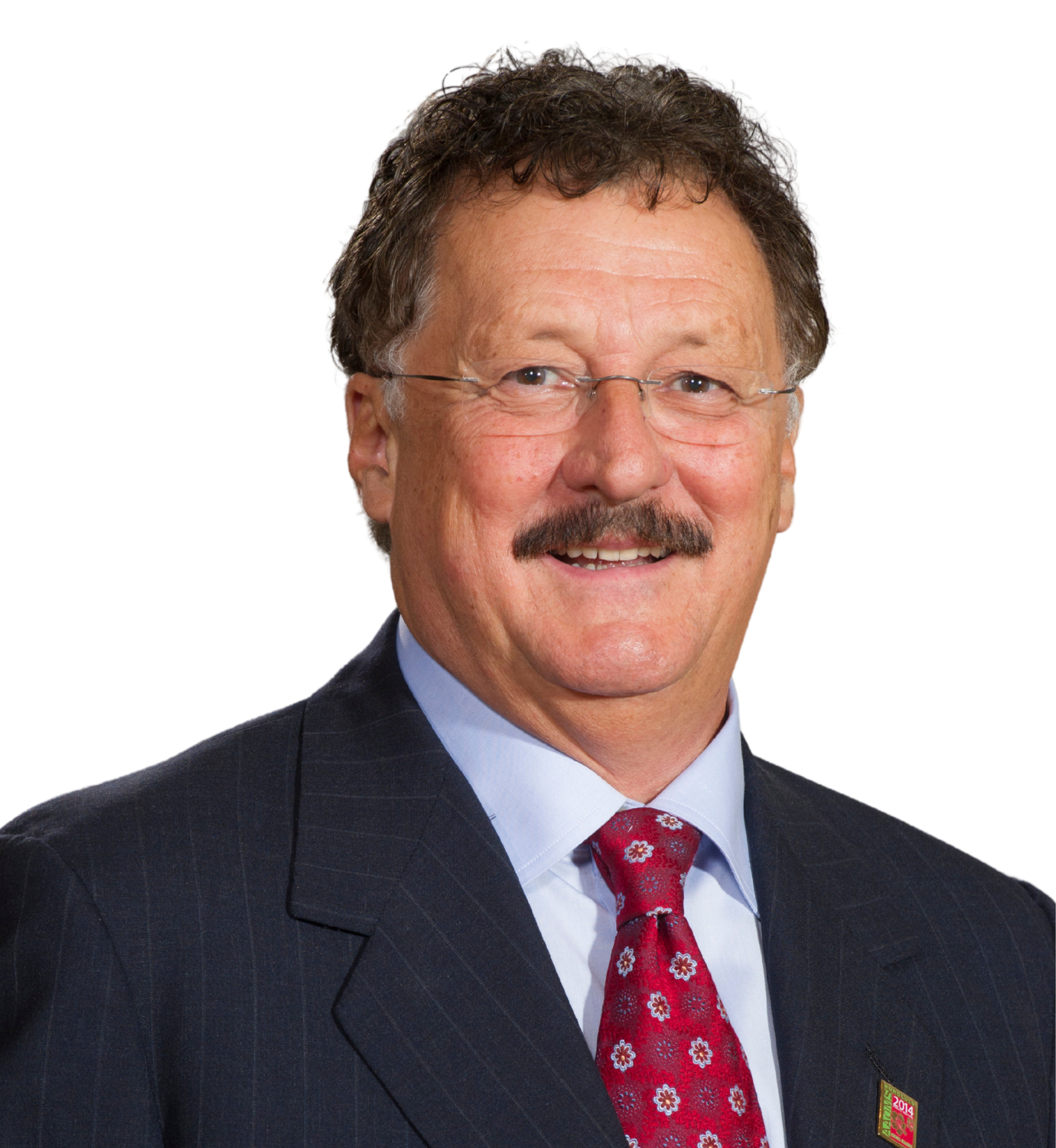
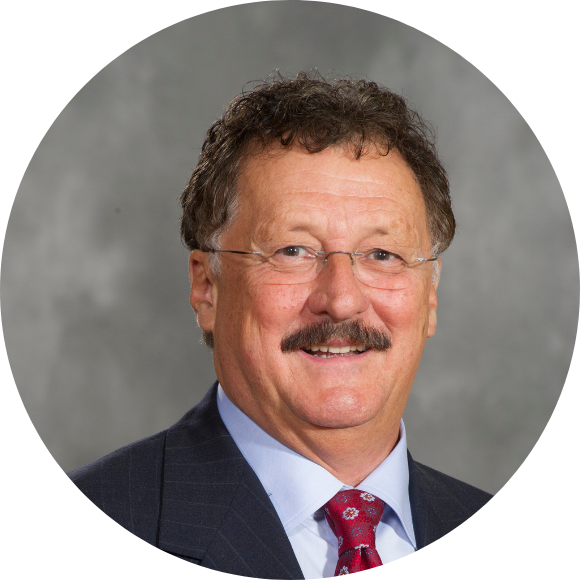

Dr. Vincent E. DiFabio is a distinguished expert in Dental Education and Post-Graduate Dental Residency Training, with a specialized focus on Temporomandibular Joint Disorders (TMJ) and treatments. With decades of experience spanning both clinical and academic settings, Dr. DiFabio has dedicated his career to advancing TMJ diagnosis, treatment protocols, and surgical innovation.
BIOGRAPHY
Dr. DiFabio’s academic journey reflects his commitment to education and research. He attended Gonzaga College High School in Washington, D.C., before earning his undergraduate degree from Xavier University in Cincinnati, Ohio, where he was introduced to medical research. He then pursued his dental education at the University of Maryland (UMD) School of Dentistry, the first dental school in the world, where he developed an early interest in Oral & Maxillofacial Surgery (OMS). His postgraduate training took him to the prestigious University of Rochester School of Medicine and Dentistry/Eastman Oral Health Institute, where he completed: [A] General Practice Residency, [An] Oral & Maxillofacial Surgery (OMS) Residency, and [A] Master of Science (MS) in Pathology and Dental Research.
Dr. DiFabio is a Board-Certified Oral & Maxillofacial Surgeon (ABOMS), a Fellow of the American Association of Oral & Maxillofacial Surgeons (AAOMS), and a Fellow of the American Society of TMJ Surgeons (ASTMJS). He is also an Associate Clinical Professor of OMS at the University of Maryland School of Dentistry and the University of Maryland Medical Center. He continues to practice part-time while shaping the next generation of oral surgeons.
Dr. DiFabio served as a U.S. Army Reserve Officer while completing his residency, contributing his expertise at Walter Reed Army Medical Center. His commitment to public service led him to establish a free migrant dental clinic while serving as a triage officer with the 617th Evacuation Hospital Unit. A strong advocate for accessible dental care, he collaborated with the University of Maryland and Frederick Medical Center (FMC) to establish a standalone dental clinic in 2017-present.
Dr. DiFabio’s passion for TMJ disorder treatment sparked in the 1990s when he witnessed complications from Vitek Teflon Proplast implants, an FDA-approved but problematic joint replacement material. As TMJ arthroscopic surgery emerged in the U.S., he immersed himself in advanced surgical training and pioneered the TMJ Mini-Residency Surgery Program in 2014, which continues to train oral surgeons worldwide.
In 2024, he contributed to two landmark publications: TMJ Guidelines & White Paper – Developing national standards for TMJ treatment and HMBG1 Nuclear Protein and TMJ Synovitis.
His leadership extends to national advocacy, serving on the FDA’s TMJ Registry & Patient Advocacy Committee, the TMJ Association Round Table Committee, and the National Academies (NAMSE) TMJ Forum. These efforts continue to shape future policy recommendations, with a National TMJ White Paper and Treatment Algorithm set for release in 2025.
A passionate educator, Dr. DiFabio has spent decades teaching at UMD’s School of Dentistry and UMMC, mentoring both dental students and OMS residents in oral surgery, anesthesia, implant placement, and TMJ procedures. He remains a sought-after speaker at national and international conferences. Beyond his clinical and academic contributions, he has served in numerous leadership roles, including President, Maryland Society of OMS, President, Middle Atlantic Society of OMS, AAOMS Board Member, AAOMS Delegate & AAOMS OMSPAC Committee Chair, President of ASTMJS and Reviewer, Journal of Oral & Maxillofacial Surgery.
Outside of his professional endeavors, Dr. DiFabio enjoys gardening, landscaping, and community service. A former President of the Frederick Men’s Garden Club, he also serves on the Board of The Ranch, a rehabilitation facility for individuals overcoming addiction. He has been a Rotary member for over 30 years. His greatest joy is spending time with his wife, three children, two grandchildren, and two grand dogs.
Whether mentoring the next generation of oral surgeons or advocating for patient-centered TMJ care, Dr. Vincent E. DiFabio remains a driving force in the field of Oral & Maxillofacial Surgery.
.webp)


Dr. Jason E. Portnof is a diplomate of the American Board of Oral and Maxillofacial Surgery and a fellow of the American College of Surgeons (FACS), the American College of Dentists (FACD) and the International College of Dentists (FICD). His interests include the full scope of oral and maxillofacial surgery with an emphasis on the correction of dentofacial deformities, orthognathic surgery (corrective jaw surgery), maxillofacial reconstructive surgery, corrective jaw surgery (for TMJ), oral and maxillofacial pathology, and complex dental implantology.
BIOGRAPHY
Dr. Portnof graduated with honors from the Nova Southeastern University College of Dental Medicine in Ft. Lauderdale. He also earned an MD from Weill Cornell Medical College in New York City, where he was trained in oral and maxillofacial surgery. He received fellowship training in pediatric maxillofacial surgery/craniomaxillofacial surgery at the Royal Children’s Hospital in Melbourne, Australia.
Dr. Portnof was the 2021 Chair of the AAOMS Committee on Cleft, Craniofacial and Pediatric Oral and Maxillofacial Surgery (CCCPOMS) and the pediatric consultant to the AAOMS Committee on Anesthesia (CAN). He serves on the Board of Directors of the American Dental Society of Anesthesiology (ADSA). Dr. Portnof is a board examiner for the American Board of Oral and Maxillofacial Surgery (ABOMS). He is Past President of the Florida Cleft Palate-Craniofacial Association (FCPA) and the Florida Society of Oral & Maxillofacial Surgeons (FSOMS). He is currently the President of the Palm Beach County Dental Association (PBCDA) and the Second Vice President of the Atlantic Coast District Dental Association (ACDDA).
Dr. Portnof has authored multiple peer-reviewed articles andpresented both nationally and internationally. Also, he has held numerousteaching positions at prestigious universities including Albert EinsteinCollege of Medicine, Weill Cornell Medical College, Florida AtlanticUniversity, and his alma mater, Nova Southeastern University.
Adjunct Associate Professor and Past Director: PediatricMaxillofacial Surgery & Craniomaxillofacial Surgery, Department of Oral andMaxillofacial Surgery, Nova Southeastern University College of Dental Medicine.



I have been actively involved in the digital development of the dental curriculum at UMKC, where I also managed the 3D printing and simulation labs within the Department of Orthodontics. Dental students would oftentimes request our help informally and showed interest in this new approach to dental care. Our team made significant contributions to treatment simulations and collaborated with the Departments of Periodontics and Endodontics to advance the use of 3D printing technologies in dental education. My experience in these areas is particularly relevant now, as the focus of curriculum development is increasingly shifting towards digital technologies and the integration of machine learning into dental education.
BIOGRAPHY
After graduating from the Faculty of Dentistry at the University of Montreal in 1978, I practiced general dentistry in Quebec for ten years. I then pursued advanced education, obtaining both a certificate and a Master of Science degree from Boston University School of Dentistry in 1993. Following my postgraduate studies, I returned to private practice in Quebec for seven years while simultaneously volunteering at the Montreal Children's Hospital in the Department of Craniofacial Sciences for an additional seven years. During this time, I also taught continuing education courses in the Department of Pediatric Dentistry at the Montreal Children's Hospital.
My academic career took a significant turn when I was recruited by the new Dean of McGill University's Faculty of Dentistry to lead the Orthodontic Division. In 2000, I became the Director of the Orthodontic Division as the sole full-time faculty member. My mission from the Dean was to revamp the curriculum and rewrite the second third and 4th year curriculum to better reflect the new realities of dentistry in the 20th century. I was responsible for teaching second-, third-, and fourth-year students while also serving as the Clinic Director for the orthodontic department. During my tenure at McGill, I successfully navigated three accreditation cycles and initiated a project to establish a postgraduate program in orthodontics. Although the program received Senate approval, it was ultimately postponed due to economic constraints.
In 2019, I was recruited by the University of Missouri-Kansas City (UMKC) to serve as Chair of the Orthodontic Department. I held this position until my retirement in 2023, serving as both Chair and Endowed Professor. My responsibilities included overseeing pre-doctoral orthodontic courses on growth and development for second- to fourth-year students, managing the orthodontic clinic, and improving the orthodontic residency curriculum which had not been changed for over 20 years and not reflecting the new digital reality of orthodontics.
Upon my retirement from UMKC, I received an offer from the Department of Molecular Genetics at Baylor College of Medicine in Houston, TX, to continue my research on the craniofacial aspects of osteogenesis imperfecta. This research began during my tenure at McGill, continued at UMKC, and has achieved notable success, currently undergoing its third renewal application. I also serve as a consultant, providing clinical oversight in digital orthodontics to ensure that treatments provided under the NIH BDC auspices meet the highest clinical standards.
In 2024, I was recruited as a guest professor in the Department of Orthodontics at Case Western Reserve University in Cleveland, OH. My role involves teaching an introduction to biomechanics in orthodontics to residents and assisting in the establishment of a 3D printing laboratory to leverage artificial intelligence, machine learning, and digital orthodontic technologies. We are in the process of acquiring the necessary materials and equipment, with plans to launch the curriculum in 2025 once all institutional approvals are obtained.
Additionally, since 2017, I have held the title of Honorary Professor at the Faculty of Odonto-Stomatology at the University of Ocean City in Ho Chi Minh City, Vietnam. I have been actively involved with the institution since 2014, contributing to the development and delivery of a blended learning curriculum aimed at advancing orthodontic education and care in Vietnam.



Dr Harold Nii-Aponsah is an Assistant Professor of Dental Medicine in the Department of Restorative Sciences at The University of Alabama at Birmingham (UAB). He is a board-eligible Dental Public Health Specialist and a General Dentist.
BIOGRAPHY
Born and raised in Accra, Ghana. Dr. Nii-Aponsah had his Bachelor’s degree in Medical Sciences from the University of Ghana and graduated with a Doctor of Dental Surgery degree from the University of Ghana School of Medicine and Dentistry.
In Ghana, he worked intensely in non-profits and community-based practices, and that is where he fell in love with community-based participatory oral health research. After which he has gained expertise and worked on several collaborative community based research programs in the United States, and Ghana.
Dr Nii-Aponsah holds a Master’s in Public Health at Northern Illinois University, with emphasis on Health Education and Health Promotion, and a Ph.D. in Public Health Sciences doing extensive work on oral cancer disparities.
He completed his Residency training in Dental Public Health (New York State Dental Public Health Residency Program) in the Department of Community Dentistry at the Eastman Institute for Oral Health, University of Rochester Medical Center. He also completed the year-long leadership academy Dental Public Health Leadership Academy (DPHLA) training program, where his work focused on Medical-Dental Integration research particularly on using Oral health centers as primary referral points on essential Medical diseases.
Dr. Nii-Aponsah was also an Assistant Professor of Health Sciences at North Central College and a Lecturer at Northern Illinois University, teaching Epidemiology, Biostatistics, Research Methodology and design, and General courses in Public Health Sciences.
Through his transitions in career paths, he has garnered expertise in working with diverse populations and how they strive to improve their oral health status. He has actively participated in multiple research projects and received numerous grants for his work with health disparities; notable among is the NIH UR CTSI grant for his work in exploring oral and system dental integration and his work on establishing routine diabetes screening in the dental office.
Dr Nii-Aponsah currently serves on the Board of Directors of the American Institute of Dental Public Health. He was the Immediate Past Chair of the Academic Section of the Illinois Public Health Association and has extensive experience in Nonprofit Leadership as well as organizational leadership in various capacities.
He is passionate about providing quality comprehensive clinical care to his patients and using research to explore oral health disparities and their implications on systemic disease, especially as they affect vulnerable populations. His lifetime goal is to use his clinical expertise, research, and training to eliminate oral health inequalities as they affect vulnerable populations.



Dr. Suzie Bergman is Execudent Education’s Subject Matter Expert in Oral Medicine and a Thought Leader around the topic of Medical and Dental Integration (MDI).
BIOGRAPHY
Dr. Bergman is an Adjunct Associate Professor for Pacific Northwest University School of Dental Medicine, where she collaborates in the development of Orofacial Pain and Temporomandibular Disorder (TMD) curriculum. She is also a Visiting Scholar at Oregon Health Science University in the Department of Neurological Surgery, where she is a co-investigator in research surrounding the differential diagnosis of Trigeminal Neuralgia and TMDs. This work has been instrumental in developing an algorithm to help clinicians more accurately identify musculoskeletal disorders and make appropriate referrals. Together with researchers from UCLA and Duke University, Dr. Bergman is further focusing on outreach and collaboration for research that emphasizes the needs and priorities of patients. They are looking for innovative solutions which allow for enhanced outcomes that synergize optimally with patient expectations.
Dr. Bergman is a Fellow of the TMJ Foundation, a global consortium and online fellowship program for Oral and Maxillofacial Surgeons, where she serves as Selection Chair, Advisor and Honorary Program Faculty. The TMJ Foundation established an accredited one-year global fellowship program to encourage critical thinking in the diagnosis and management of TMDs. They are entering their fourth year of this program, which has hosted lecturers from 14 international professional education institutions.
With a natural ability to form connections, Dr. Bergman has collaborated with numerous leaders in the field to inform clinicians about the unique needs of TMD patients, from routine dental care to end-stage management. She is a clinical expert for the TMJ Patient Led RoundTable, a patient-centered, public private partnership that the FDA launched with the TMJ Association under the auspices of FDA’s Medical Device Epidemiology Network (MDEpiNet). This work advances national/international infrastructure to bring real world data and patient experiences together. Their most recent project has been the formation of a TMJ patient registry. Dr. Bergman served as a liaison to connect this group with the Association of Migraine Disorders, which also has a registry, to explore the synergy in sharing data surrounding chronic overlapping pain conditions (COPCs).
Dr. Bergman is a tenured instructor for McGann Postgraduate School of Dentistry (MPD), where she developed a TMD curriculum entitled “Twenty-First Century TMD Protocols.” After graduating with highest honors from MPD’s sister company, Progressive Orthodontic Seminars, Dr. Bergman began teaching orthodontics for the general practitioner, and a dental assistant course for orthodontic assistants. She has taught these courses domestically and in Europe, Australia, Asia, and Africa since 2014.
Since 2022, Dr. Bergman has been a Quality Assurance consultant, author and content reviewer for Immersify Education, an award-winning Ed Tech company that uses Artificial Intelligence, Augmented Reality and gamification to provide interactive educational content for dental and nursing students. She now also serves as a subject matter expert consultant for Immersify’s institutional partnerships. As a dental education specialist, Dr. Bergman’s role is to answer questions for dental faculty and deans who are interested in adopting Immersify into their programs and to assist in customizing the platform for each institution’s specific needs and requirements.
In December, 2024, Dr. Bergman was nominated and confirmed as the President-Elect of the American Association of Women Dentists (AAWD). After a two year term, she will ascend to the position of President of AAWD. Among other duties, she will be developing directives for committees and planning the annual conference. Conference planning is one of Dr. Bergman’s strengths, as she enjoys bringing educators and learners together around shared passions.
At the age of 19, Dr. Bergman was involved in a fluke accident that caused severely damaged temporomandibular joints, resulting in multiple surgeries and eventual total joint replacements. This accident changed the trajectory of her life, and positions her uniquely as both a patient and provider. She has dedicated a large portion of her clinical career to treating patients with pain. The biopsychosocial model is what informs her work in clinical practice, education, outreach, and research. You can watch her TEDx Talk, “Why is healthcare ‘disjointed’?” here to learn more: Click here.
Dr. Bergman received her DDS degree from West Virginia University in 1994 and holds certificates from University of Kentucky and University of Michigan’s Orofacial Pain Shadowing Programs. When she is not working, she can be found spending time with her husband and their three adult children, either in the snow or the sun.

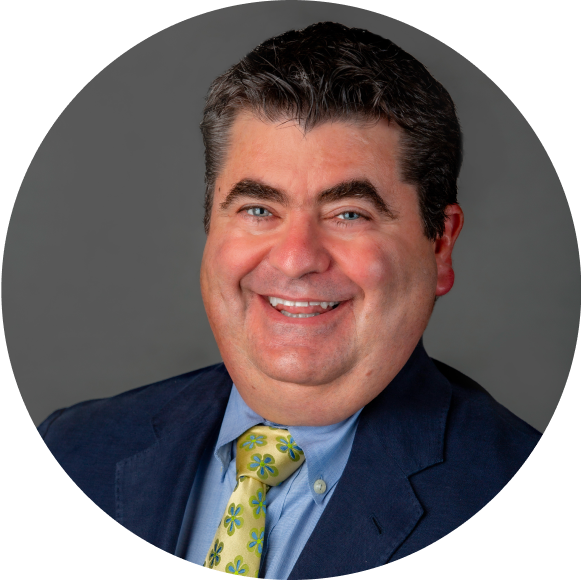

Dr. Douglas B. Keck, DMD is a distinguished pediatric dentist with extensive experience in clinical practice and dental education. He was in the private practice of pediatric dentistry in New Haven and Madison, Connecticut for 25 years before accepting his current role as Dental Director for Healthcare Network in 2019, the only Federally Qualified Health Center in Collier County.
BIOGRAPHY
A graduate of the University of Connecticut School of Dental Medicine, he completed his pediatric post-doctoral specialty training at Harvard University School of Dental Medicine and Children’s Hospital Boston. In addition to his American Board of Pediatric Dentistry certification, Dr. Keck holds a Master of Science in Higher Education from Drexel University.
Dr. Keck served as the President of the American Academy of Pediatric Dentistry (AAPD) Foundation from 2022-2024 but has been on the Board of Trustees of the organization since 2013. He has also served as the Associate Director of the Advanced Education in Pediatric Dentistry Residency Program Rhode Island site of NYU Langone Dental Medicine from 2017-2019.
Along with his leadership roles, Dr. Keck has been recognized for his contributions to dental education and literature, having published in the Journal of Dental Education and serving as co-editor of the Journal of the American Dental Association (JADA)Specialty Scan for Pediatric Dentistry. Understanding the importance of giving back, Dr. Keck is proud to have been accepted into the Fellowship of the American College of Dentists in 2019 for his volunteer work in organized dentistry.
One of Dr. Keck’s most recent accomplishments was assisting in the writing and receiving of a HRSA Teaching Health Center Development Grant in 2021. He was primarily responsible for writing the Initial Application for Accreditation of a Pediatric Dentistry Residency Program that will be housed at Healthcare Network but sponsored by Lee Memorial Health. Dr. Keck will be the Program Director when the program becomes Initially Accredited by the Commission on Dental Accreditation (CODA) and begin recruiting pediatric dentistry residents to Southwest Florida.
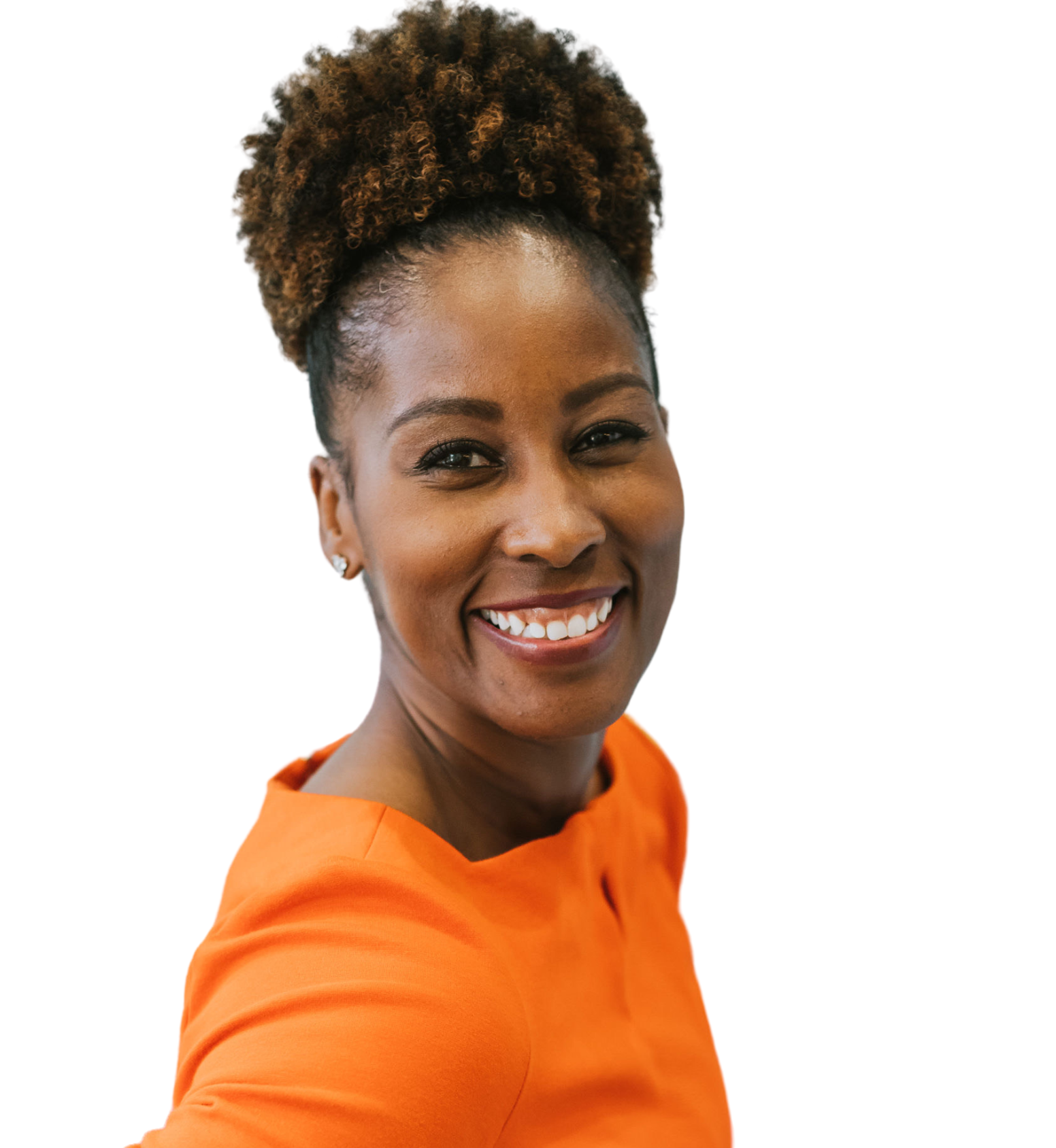
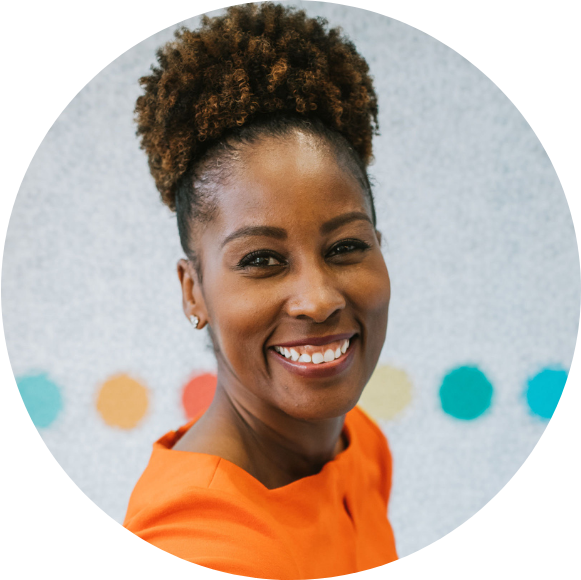

Dr. Jonelle G. Anamelechi specializes in maternal and child health. Dr. Anamelechi is a pioneer in airway-focused care, myofunctional therapy, and growth and development treatment solutions.
BIOGRAPHY
Dr. Jonelle Grant Anamelechi is a highly accomplished Board Certified Pediatric Dentist, Public Health Advocate, and Educator with almost two decades of experience in clinical practice, healthcare education, and leadership. She holds a Doctor of Dental Surgery (DDS) degree from the University of North Carolina School of Dentistry and a Master of Science in Public Health, specializing in maternal and child health. Dr. Anamelechi is a pioneer in airway-focused care, myofunctional therapy, and growth and development treatment solutions.
Dr. Anamelechi serves as an adjunct faculty member of Children’s National Hospital and mentor, contributing to the advancement of pediatric dental education and public health integration. She is a recognized thought leader and speaker on equity in healthcare, pediatric sleep disorders, and innovative approaches to clinical excellence. As the owner of two practices Children’s Choice Pediatric Dentistry and Orthodontics and a specialty integrative health practice Thrive House (Washington DC and New Carrollton MD), Dr. Anamelechi combines her expertise in practice management and patient care to deliver transformative results.
Through her consulting work, Dr. Anamelechi brings a unique perspective on integrating clinical innovation, organizational leadership, and health equity to support practices and healthcare organizations in achieving sustainable growth and improved patient outcomes.
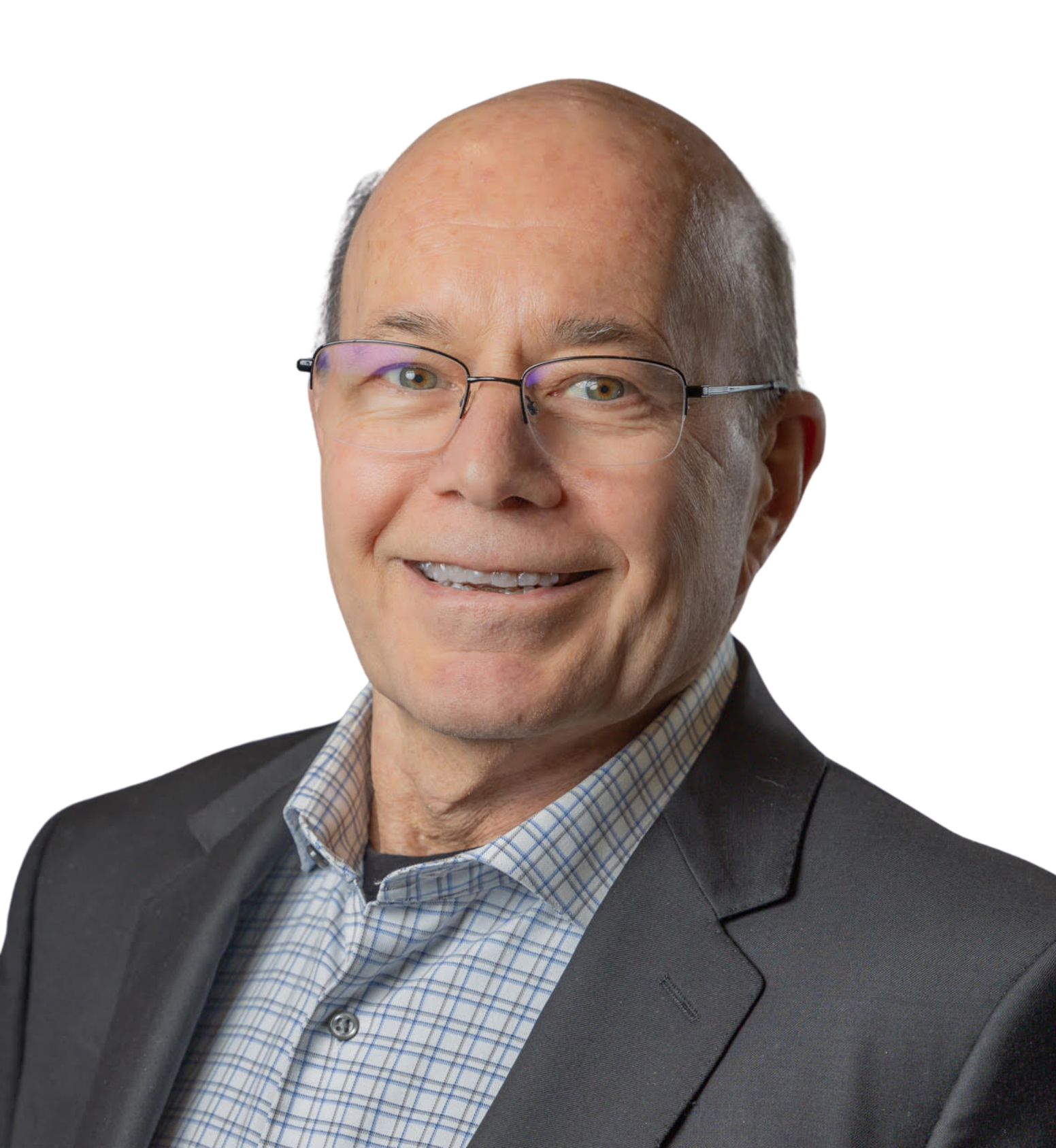
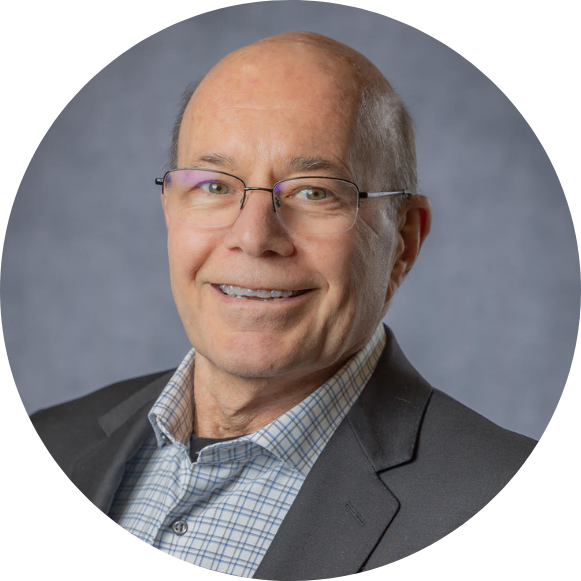

I have been engaged in dental education for 30 years, with a dedicated focus on patient care, specifically in restoring form and function and achieving effective disease control. Over the course of my career, I have served the School of Dentistry in a variety of roles. As an educator, my responsibilities have been multifaceted, encompassing patient care, student supervision, curriculum development, and academic leadership. I have contributed to pre-clinical, clinical, and post-graduate clinical instruction and have served as a course director.
BIOGRAPHY
I believe strongly in the importance of delivering high-quality education not only to dental students but also to the broader profession, ensuring that future clinicians are well-equipped to provide exemplary patient care.
Ultimately, improving outcomes and accessibility in dental care for patients with special needs requires a collaborative effort among healthcare providers, policymakers, educators, and communities. By fostering an inclusive and patient-centered approach, we can ensure that all individuals, regardless of their abilities, receive the high-quality dental care they deserve.
One of the most significant barriers to dental care for patients with special needs is the limited availability of trained professionals. Many dentists lack the necessary training to address the unique challenges these patients present, such as communication difficulties, sensory sensitivities, and medical complexities. Expanding dental education curricula to include specialized training in managing patients with disabilities can improve provider confidence and competence. Additionally, offering continuing education courses focused on special needs dentistry can help practicing dentists refine their skills.
Infrastructure and equipment modifications can also enhance accessibility within dental clinics. Wheelchair-accessible treatment rooms, adjustable dental chairs, and sedation options can accommodate patients with physical disabilities. For individuals with sensory sensitivities, clinics can implement noise-reducing technologies, offer weighted blankets, and adjust lighting to create a more comfortable environment. Mobile dental units and home-visit services can also play a crucial role in reaching patients who cannot easily visit a traditional dental office.
Policy reforms are essential to making dental care more accessible and affordable. Expanding insurance coverage for dental procedures under Medicaid and private insurance plans can alleviate financial burdens for patients with special needs and their families. Additionally, incentivizing dental professionals to accept patients with special needs through increased reimbursement rates can encourage more providers to offer specialized services. Public health initiatives that promote preventive care and early intervention can further reduce disparities in oral health outcomes.
Technology can also bridge gaps in accessibility by facilitating remote consultations and teledentistry services. Virtual appointments can help assess patient needs, provide oral health education, and determine whether in-person visits are necessary. Digital tools, such as augmented communication devices and adaptive dental equipment, can further support patients with cognitive and physical impairments during dental visits.
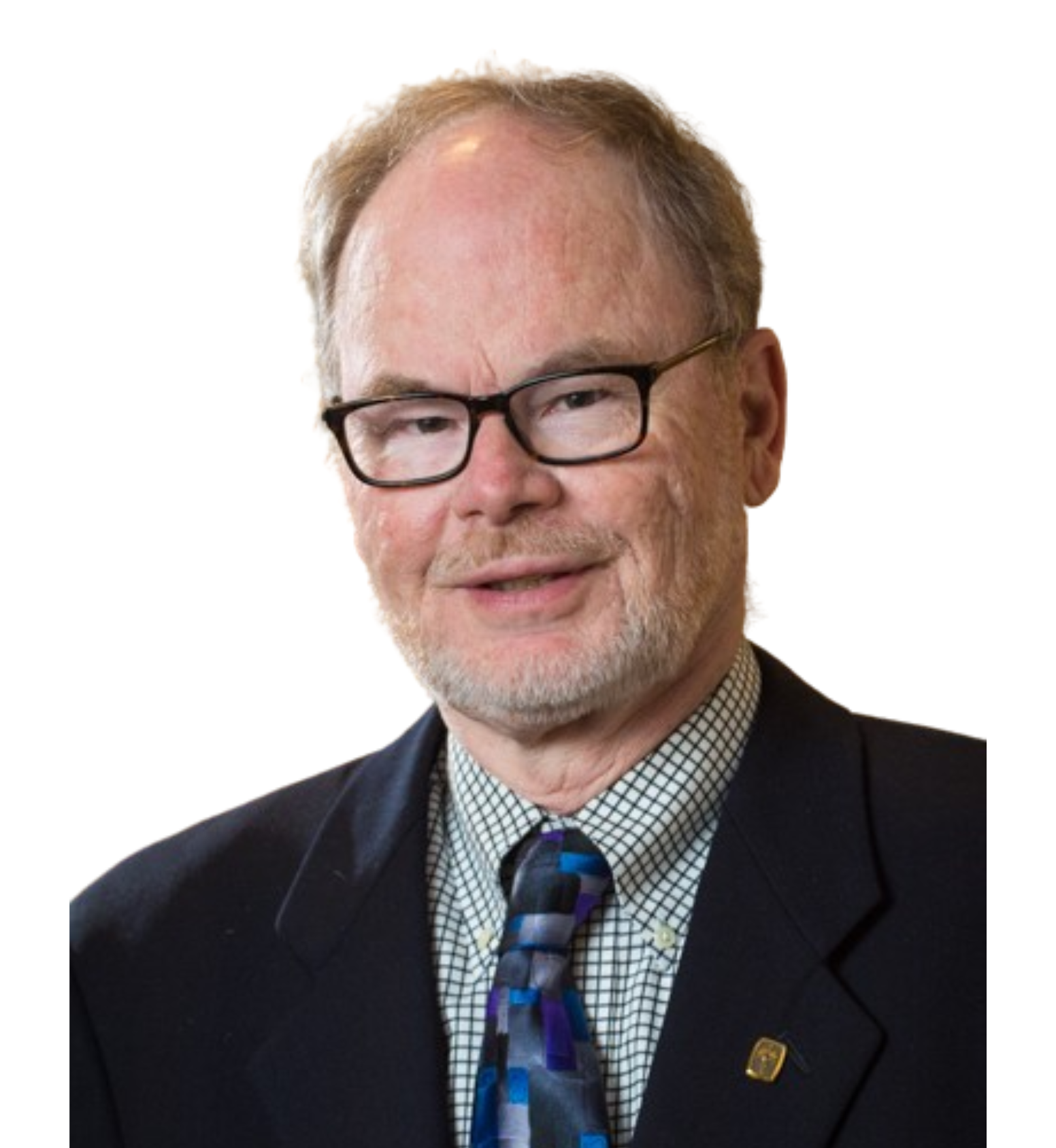
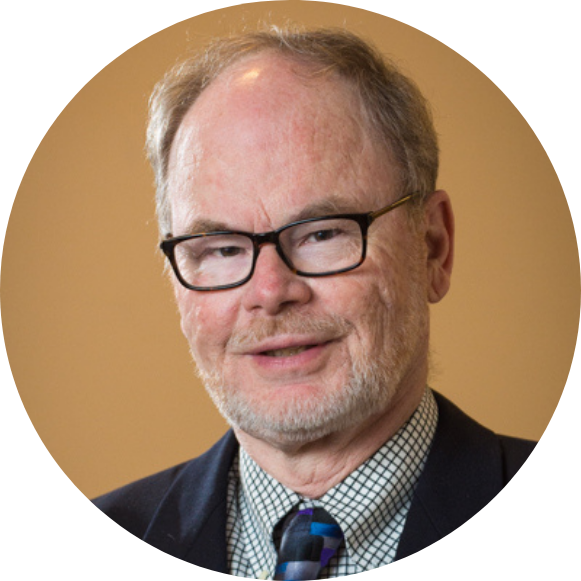

Dr. John Rugge is the founder and retired CEO of The Hudson Headwaters Health Network, a system of 26 federally qualified health centers (FQHCs) serving 180,000 patients across the Adirondack region of upstate New York. He continues to work in the regional healthcare space, including leading a coalition of more than 200 individuals and organizations to defend Medicaid, on which many local communities depend.
BIOGRAPHY
Following earning a B.A. degree at Williams College, a Master of Theological Studies at Harvard, an M.D. at Yale, and internship at Albany Medical Center, he came north in 1974 to complete a book on wilderness canoeing. His plan was to practice medicine in the area for a few months and then return to residency.
That fall, he was employed by the nearest hospital (30 miles away) as the covering physician of a new ER Extension Center which had lost all three local physicians that summer. His assignment was to provide hands-on care for patients and supervise four PAs (physician assistants) who were among the first to receive this training in the state.
By spring, he gave up the plan to return to Albany since many surrounding towns were losing their doctors—the last generation of solo GPs—and there would be no place to refer his patients. Additionally, the hospital itself was losing money and felt unable to continue operating its clinics.
Dr. Rugge came to hear of certain government funding for community health centers in underserved areas. He secured designation for the area as Medically Underserved and began writing applications for both federal and state grant support.
These dollars proved lifesaving, and, by 1980, four health centers in small neighboring towns looked to have a possible future. That year, federal requirements forced the centers to separate from the hospital and become independent.
What followed for Dr. Rugge was recruiting community leaders to form a Board of Directors and, with their support, assume full operational responsibility, while also securing local backing, including rent-free health center facilities from rural towns.
Additional financial support from local donors and regional foundations enabled services previously unavailable in the region, beginning with Lamaze classes and nutrition counseling, expanding to insurance enrollment assistance, care coordination for complex cases, a Homeward Bound program providing house calls, and now the development of a full-scope OB-GYN center—the only remaining practice serving Glens Falls and the surrounding area.
Service development and expansion followed the same pattern—local support to initiate a program which then attracted state attention and support leading to federal recognition and financing.
Recognized as a pioneer, Dr. Rugge was appointed to 37 New York State councils and commissions, ranging from the Rural Health Council to chair of Governor Mario Cuomo’s Health Care Advisory Board. This work later led to his service on President George W. Bush’s Medicaid Commission, which despite its original mandate to reduce the program ultimately helped protect it.
These efforts led to recognition of Hudson Headwaters’ capacity to effectively deploy new resources. As a result, the Network was selected by the state to pilot New York’s Medical Home model of care. Through Medicaid authority and encouragement from the Commissioner of Health to commercial insurers, Hudson Headwaters, certified as a Medical Home, became eligible to receive an additional $7 per patient per month for comprehensive primary care.
Two years of data showed that the provision of this PMPM funding in addition to standard insurance reimbursement resulted in both improved quality for patients and lower costs for payers. As a consequence, this Medical Home pilot was extended to become a statewide benefit for qualifying practices.
Upon retiring from Hudson Headwaters, Dr. Rugge continued service as a board officer or council leader for a number of health care entities including the University of Vermont Health Network, the Public Health and Health Planning Council of New York State, and the Primary Care Development Corporation (a nonprofit organization providing financial loans, consulting services and advocacy work across the nation).
Most recently, he has been an organizer of the Healthcare Coalition for the North Country, a group of 200 health care professionals and community leaders in NYS Congressional District 21 dedicated to explaining to elected officials at all levels “Why Medicaid Matters Here.”
Additional important activities for him include enjoying time with family, relaxing at the family cottage on Tripp Lake, and staying in touch with friends and colleagues from across the decades.
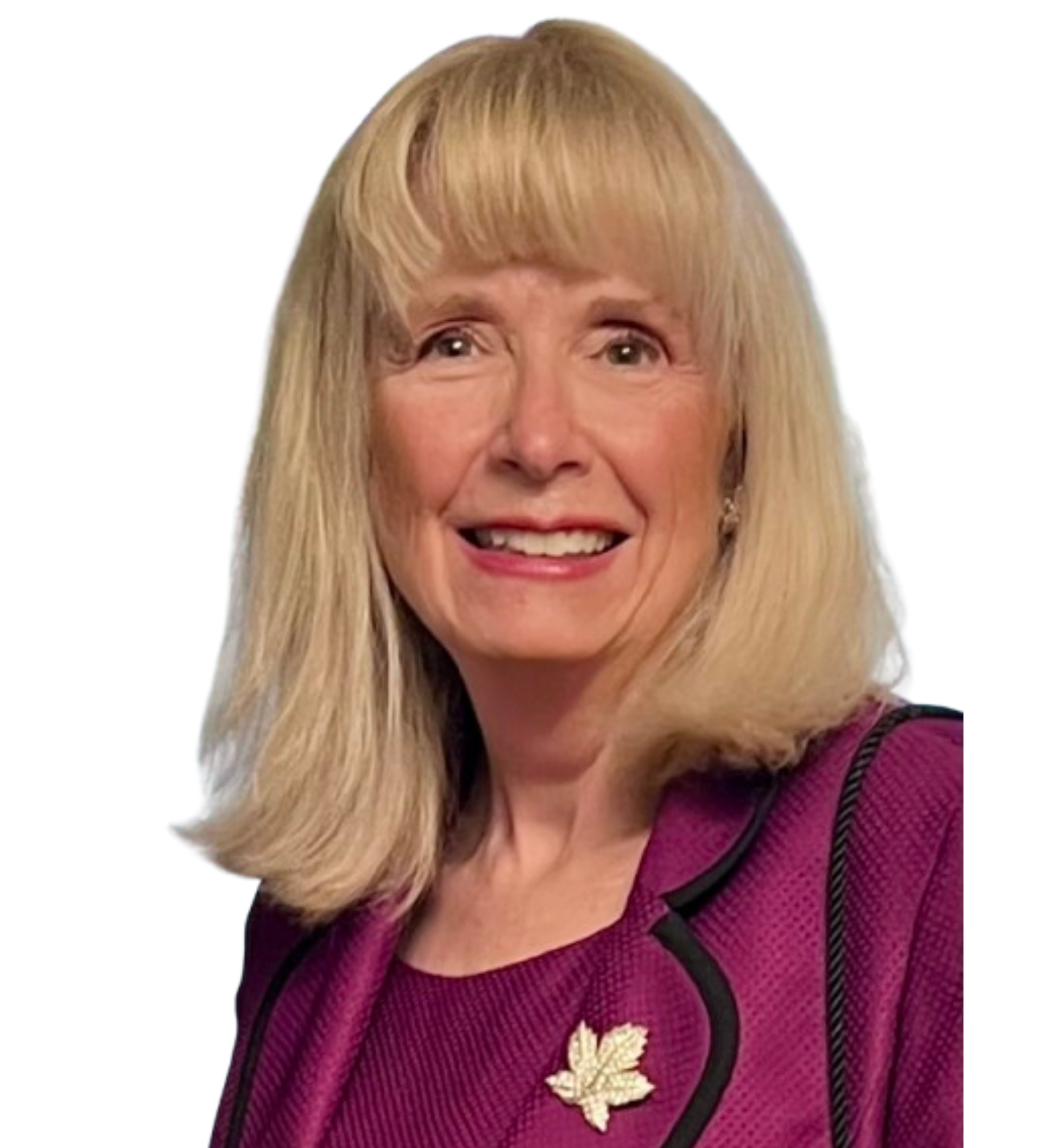
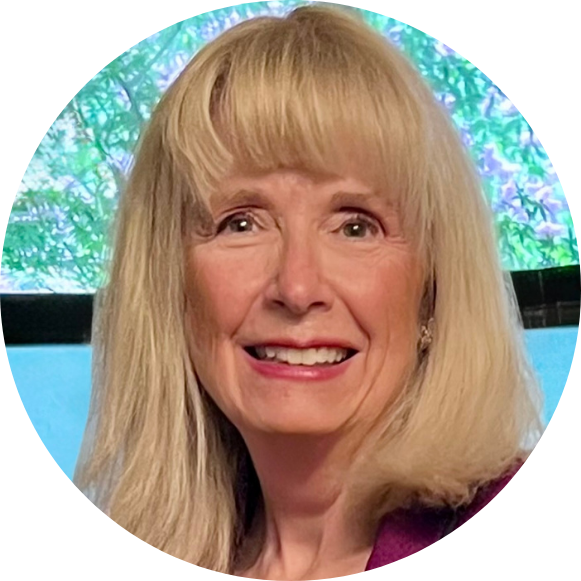

Sara Gordon, DDS, MSc is an expert in dental education and curriculum development. She is Professor Emerita in the Department of Oral Medicine and former Associate Dean for Academic Affairs at the University of Washington School of Dentistry (UWSOD). Under her 11-year tenure, UWSOD scores on national board exams rose to among the highest in the nation, while the school’s world ranking climbed to 4th place. Dr. Gordon also led curricular innovations during the COVID pandemic, setting a benchmark for other North American dental schools.
BIOGRAPHY
She is a proven leader with decades of experience in health education and access to care. She is exceptionally experienced in dental accreditation, both as a specialty site visitor in oral and maxillofacial pathology since 2008 for the US Commission on Dental Accreditation and as a leader of accreditation efforts within US dental schools, most recently as overall accreditation chair at UWSOD. She is also past chair of the Academic Deans and Section on Academic Affairs of the American Dental Education Association (ADEA) as well as several other ADEA sections.
Dr. Gordon advocates internationally for the importance of understanding oral healthcare as a mandatory part of medical care, and oral health as a mandatory part of overall health. She has taught and practiced oral medicine, oral pathology, and oral diagnosis for four decades at dental schools in the USA and Canada. Dr. Gordon received a DDS from Dalhousie University (1985) and MSc in pathology (1996) from the University of Western Ontario, where she also completed a four-year residency in oral and maxillofacial pathology (1997). She has held teaching positions coast to coast in North America: Dalhousie University, University of Western Ontario, University of Detroit Mercy, University of Illinois Chicago, and University of Washington.
Dr. Gordon has international experience. She is a diplomate in the American Board of Oral and Maxillofacial Pathology and a fellow in both oral medicine and oral and maxillofacial pathology in the Royal College of Dentists of Canada. She is also a fellow in dental surgery in the Royal College of Surgeons of Edinburgh. She is former President of the Canadian Academy of Oral and Maxillofacial Pathology and Oral Medicine, and former national council member of the American Academy of Oral and Maxillofacial Pathology. She is a national board examiner in oral medicine and oral pathology for the Royal College of Dentists of Canada and a member of the Dental Education Specialty Advisory Board of the Royal College of Surgeons of Edinburgh, Scotland. She is also a commissioner of the US Joint Commission on National Dental Examinations.
In 2024, the American Dental Education Association (ADEA) awarded Dr. Gordon the Chair of the ADEA Board of Directors Citation for her “exceptional service to ADEA and the dental education community.” Her many distinctions include dozens of awards and scholarships recognizing her teaching, research, leadership, and writing. She has authored or co-authored more than 100 scientific publications and presented at hundreds of professional events and continuing education courses around the world. She lives in rural Nova Scotia, Canada, and travels widely.
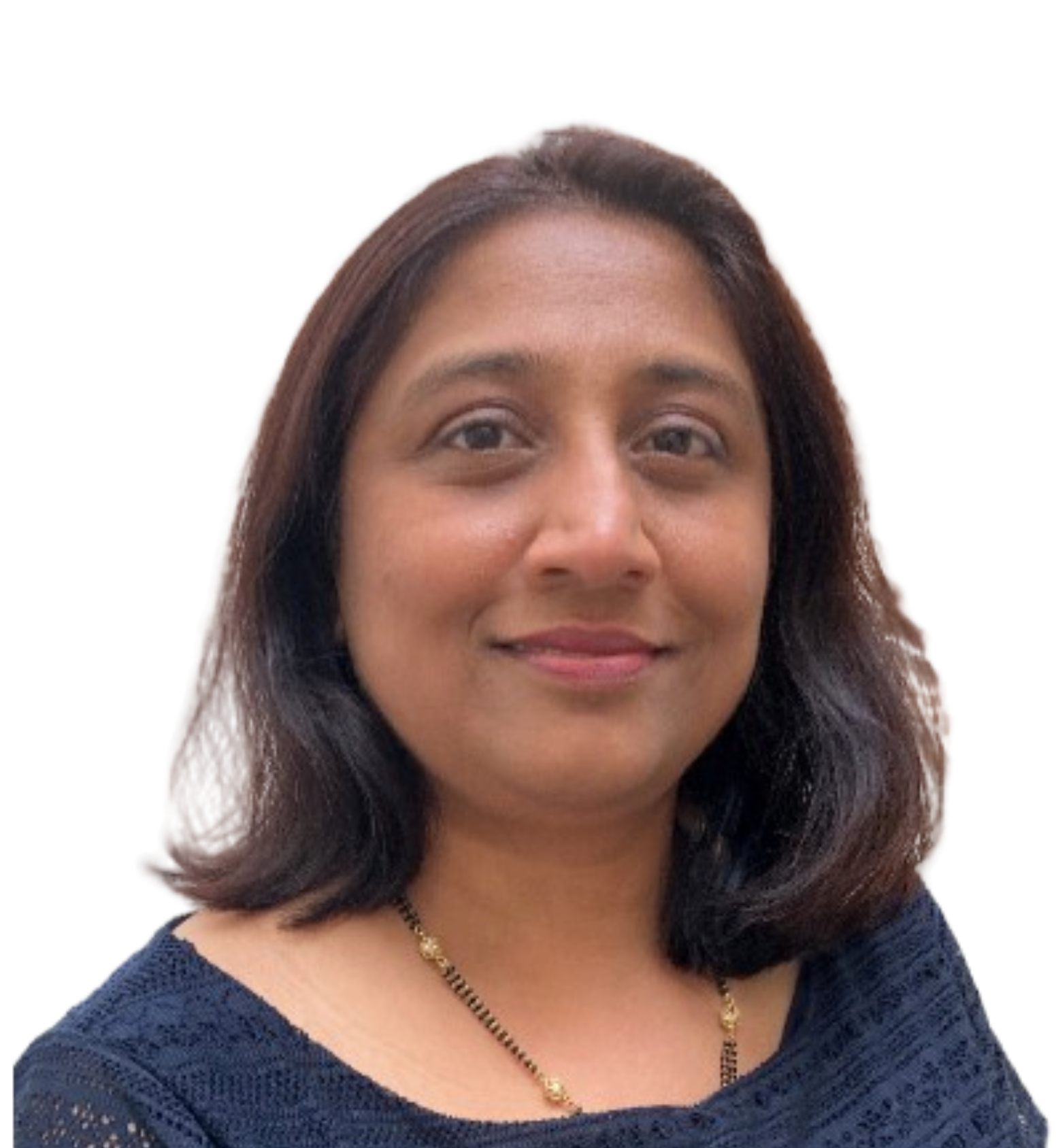
.png)

At Academic Health Associates, Dr. Shah ensures institutional compliance with CODA standards for oral pathology and oral medicine at both undergraduate and graduate levels. She also provides recommendations for curriculum design and best teaching practices in oral pathology and oral medicine, both didactically and clinically.
BIOGRAPHY
Dr. Sonal S. Shah is a board-certified oral and maxillofacial pathologist and active oral medicine clinician with over 18 years of experience in academia. She previously worked as a full-time Clinical Assistant Professor at New York University College of Dentistry where she was also appointed as Director of the NYU Oral Medicine Clinic. She is currently an Associate Professor of Oral Pathology and Oral Medicine at The University of Nevada, Las Vegas. Dr. Shah teaches all levels of dental students and residents both in the didactic and clinical setting, performs microscopic examination of oral biopsy cases and maintains a very busy oral medicine clinical practice. She has extensive experience in course development/design and serves as course director for multiple courses.
As a recognized expert in oral pathology and oral medicine education, Dr. Shah holds several key leadership positions. She is currently a CODA site visitor for oral pathology residency training programs and has served for many years and been involved in many site visits. As a subject matter expert, she is an appointed member of the INBDE test construction committee. She is very active in the American Dental Education Association, serving on many committees, regularly presenting educational programs and reviewing program proposals annually. Dr. Shah is appointed to an ADEA taskforce that has revised the “Competencies for the New General Dentist” document that will serve as a blueprint for many dental school curricula. Dr. Shah serves on the Curriculum Committee, Institutional Effectiveness Committee and Strategic Planning Committee, all at the University of Nevada, Las Vegas.
Professionally, Dr. Shah has been elected or appointed to numerous prominent leadership roles in the American Academy of Oral and Maxillofacial Pathology and American Academy of Oral Medicine. She is also appointed section head of the World Workshop of Oral Medicine, an international project to develop a global undergraduate dental student oral medicine curriculum.
Dr. Shah has several publications, numerous posters and abstracts and reviews manuscripts for several prominent dental and specialty journals including the Journal of the American Dental Association. She is a regularly invited speaker at national dental and specialty meetings including the ADA, AGD and GNYDM. Dr. Shah is also a consultant and advisory board member for several private companies that are involved with early oral cancer detection devices and technologies. On a personal note, she enjoys reading, traveling, trying new restaurants and lounges with her husband and also playing Texas Hold’em Poker!


